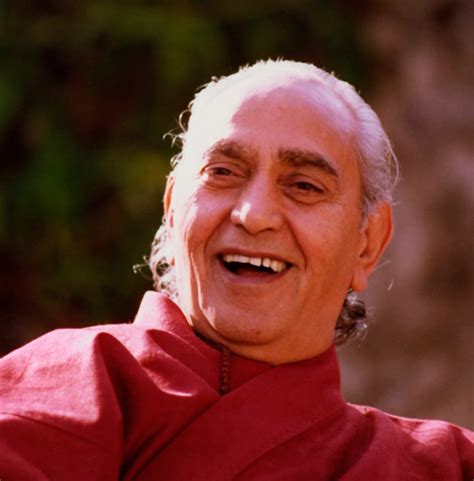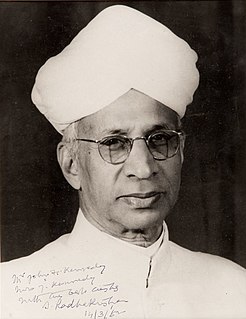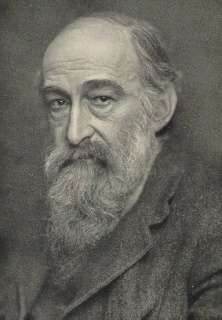A Quote by Rama Swami
All beings exist in an invisible state and then come to a state of visibility. Change occurs only on the surface, for the self-existent glory remains unchanged; changing form does not affect the self-existent Reality. Atman, Soul or the Self, dwells in all that is perishable, yet it remains imperishable.
Related Quotes
The Constitution and the Bill of Rights we designed to get the government off the backs of the people -- all the people. Those great documents guarantee to us all the rights to personal and spiritual self-fulfillment. But that guarantee is not self-executing. As nightfall does not come all at once, neither does oppression. In both instances, there is a twilight when everything remains seemingly unchanged. And it is in such a twilight that we all must be most aware of the change in the air -- however slight -- lest we become unwitting victims of the darkness.
The word Atman (Soul) means the "breath of life". Atman is the principle of man's life, the Soul that pervades his being, his breath, his intellect and transcends them. Atman is what remains when everything that is not the self is eliminated. It is the unborn and immortal element in man, which is not to be confused with body, mind or intellect.
The self-organizing and self-correcting imprint is on all aspects of reality. So not only was your body formed by this invisible hand, not only does your body continue to work by this invisible hand, but every aspect of your life - emotionally, physiologically, and spiritually - is also programmed to thrive, is also programmed for self-organization and self-correction.
The 'I' casts off the illusion of the 'I' and yet remains 'I'. Such is the paradox of Self-realization. The Realized do not see any paradox in it. Consider the case of the worshipper. He approaches God and prays to be absorbed in Him. He then surrenders himself in faith and by concentration. And what remains afterwards? In the place of the original 'I', self-surrender leaves a residuum of God in which the 'I' is lost. That is the highest form of devotion or surrender and the peak of detachment.
The term "self" seems a suitable one for the unconscious substrate whose actual exponent in consciousness is the ego. The ego stands to the self as the moved to the mover, or as object to subject, because the determining factors that radiate outward from the self surround the ego on all sides and are therefore supraordinate to it. The self, like the unconscious, as an a priori existent out of which the ego evolves. It is, so to speak, an unconscious prefiguration of the ego. It is not I who create myself; rather, I happen to myself.
The withdrawal of a State from a league has no revolutionary or insurrectionary characteristic. The government of the State remains unchanged as to all internal affairs. It is only its external or confederate relations that are altered. To term this action of a Sovereign a 'rebellion' is a gross abuse of language.
Free passion is radiation without a radiator, a fluid, pervasive warmth that flows effortlessly. It is not destructive because it is a balanced state of being and highly intelligent. Self-consciousness inhibits this intelligent, balanced state of being. By opening, by dropping our self-conscious grasping, we see not only the surface of an object, but we see the whole way through.
Ideas are easy to come by, they spring effortlessly out of the vacuity of the mind and cost nothing. When they are held and projected onto one's self or others they become a project. When the project is enacted it becomes the work, and when the work is completed it appears to be self-existent. Creation is the process of form manifesting from emptiness, where that which arises from the mind comes into existence. Yet the distance between conception and realisation may be enormous, as vast as the distance between the stars.
The assumption that the egoless condition, or union of self and God, is man's final goal and ultimate destiny is a great mistake. My purpose here is to affirm that the unitive state is a hidden path in itself, a movement in its own right that ultimately leads to no-self (no true-self and no-union). In short, the unitive state is the hidden path to no-self.































